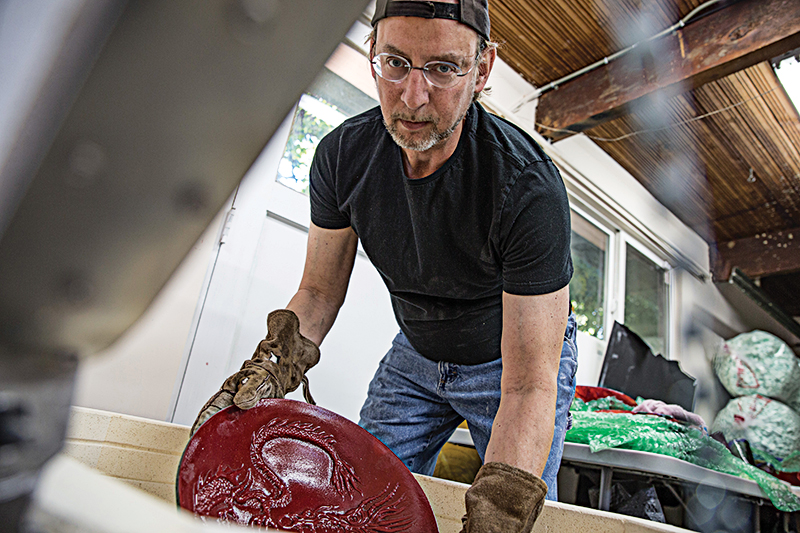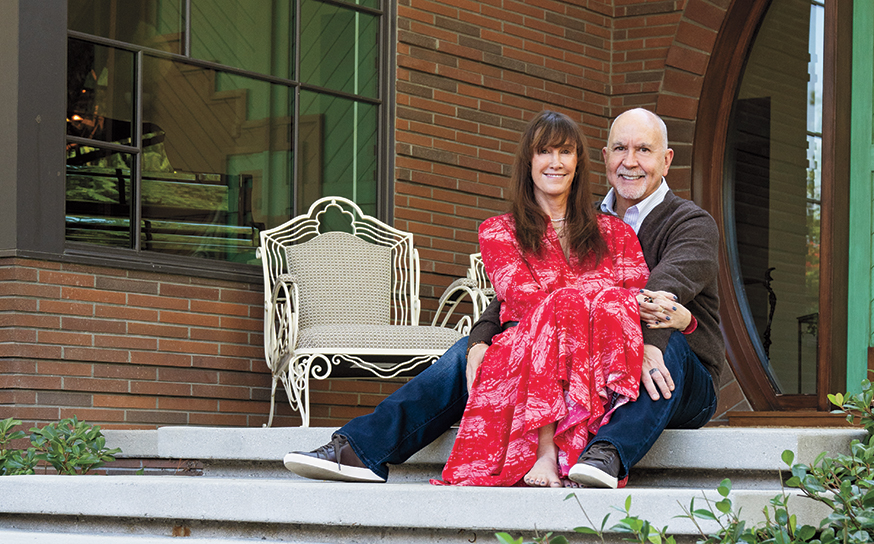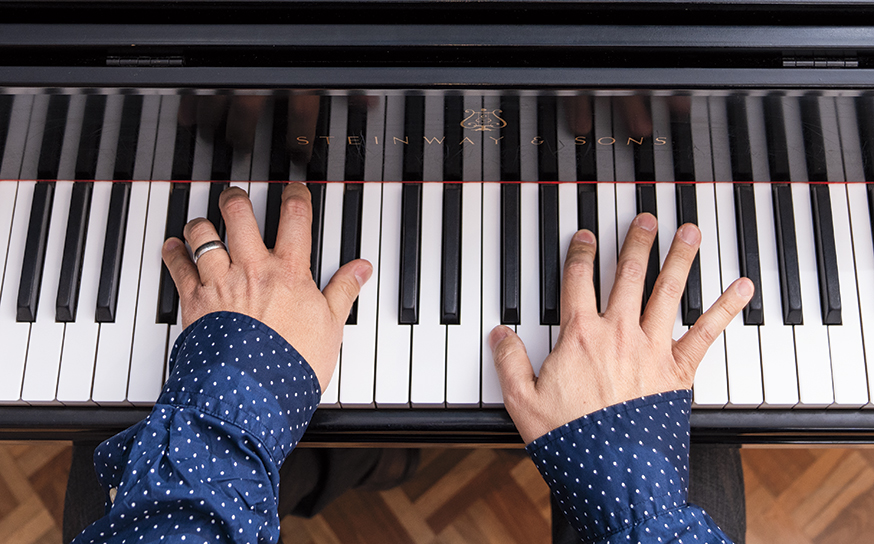
Glass Master
An artist pursues his passion for creating art from glass in new and inventive ways.
-
CategoryPeople
-
Written byKaren Jordan
Nestled on a nondescript street in Reseda, an artist has created his dream home. Steven Lenchner has transformed his house into his own version of paradise. It is filled with his personal tableware designs, backsplashes, countertops and decorative wall murals—all made of glass.
It is part of his plan to one day make a living doing what he loves to do: create art from glass. “To me that is kind of my field of dreams,” Steven says. “I figured somehow, someway I would connect with people, because I really want to work as a commissioned artist.”
The art of glass is something Steven accidentally stumbled upon. His girlfriend at the time was intent on helping him find a creative outlet. They attended a glass-making class together in 2002 in Santa Cruz, and he was immediately hooked.
“It’s my passion,” he says. “From that very first class I took, I heard this voice in my head going, ‘I could see myself doing this when I’m 80.’”
Steven’s garage is now his studio; his kitchen is also a showcase for his designs, with countertops and a backsplash crafted from colorful glass. After buying a kiln—he has two—Steven worked on cultivating his distinct style.

BOWLED OVER A sampling of the artful pieces Steven creates.
His projects all begin with a sketch. Then he creates a mold of the design with clay or a 3-D printer. Next a firing mold is made using a casting mix formulated for glass. The mold is then placed into a kiln, cured and holes are drilled into the object, which allows the melting glass to push air out of the bottom of the mold as the glass melts into the mold.
Later, the mold is put on ceramic sticks to allow air to vent the bottom as the glass melts. Once cooled, the glass disk is removed from the casting mold and placed in another mold. It is heated again, ultimately taking the desired form.
The artist currently has three lines of tableware, ranging in price from $800 to $1,450 for four-piece place settings. He believes his designs appeal to a certain artistic sensibility: people who “get” the skill involved in creating a piece and who appreciate his unique style.











